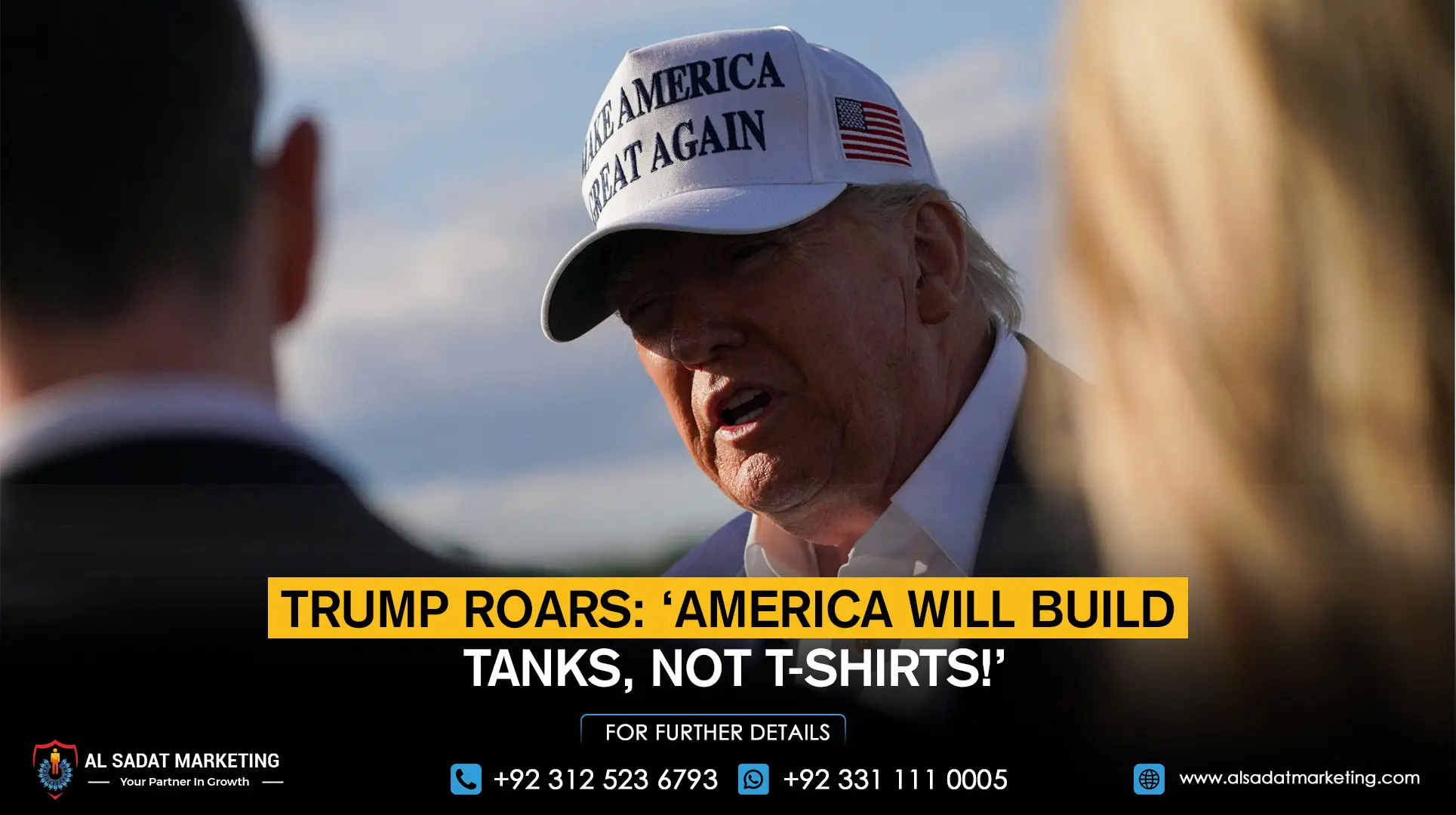U.S. President Donald Trump has once again stirred global headlines by making it clear that his administration is not interested in reviving traditional industries like textiles and footwear. Speaking to reporters in New Jersey before boarding Air Force One, Trump delivered a blunt message that underscored his long-standing industrial agenda: “We’re not looking to make sneakers and T-shirts. We want to make military equipment… tanks and ships, not socks.”
His statement came as a defense of recent comments by Treasury Secretary Scott Bessent, who argued that a booming textile sector is not critical to the future of the U.S. economy. Those remarks triggered backlash from the National Council of Textile Organizations and the American Apparel & Footwear Association, both warning that such a stance undermines thousands of American jobs and could hurt lower-income households who already bear the brunt of rising consumer prices.
Also Read: Chaos in London: Mahira Khan Surrounded by Frenzied Crowd, Security Fails to Protect Star
Industry leaders were quick to react. Steve Lamar, President of the AAFA, highlighted that 97% of clothing and footwear in the U.S. is imported and already subject to some of the highest tariffs in the country. He warned that increasing these tariffs even further would lead to higher costs for U.S. manufacturers and result in inflated prices for everyday consumers. “We need common-sense trade solutions, not policies that drive up costs for working Americans,” Lamar said in a statement that has since circulated widely among industry circles.
Meanwhile, Trump’s broader trade strategy continues to send shockwaves through international markets. In a surprising move last Friday, the president announced a proposed 50% tariff on goods imported from the European Union, originally set to begin on June 1. In what some analysts interpret as a tactical retreat, that deadline has now been extended to July 9 to allow for last-minute negotiations with European leaders.
The president also took aim at tech giant Apple, warning of a possible 25% import tax on iPhones sold in the U.S.—a move that could disrupt global electronics supply chains and hit American consumers hard. Trump’s administration has consistently framed these aggressive trade tactics as essential for restoring national strength, especially in sectors like defense, semiconductors, and artificial intelligence.
Since first taking office in 2016, Trump has made economic nationalism the core of his political identity, targeting working-class voters who feel abandoned by decades of outsourcing and global trade deals. His message hasn’t changed: rebuild America by prioritizing heavy industry, military capability, and cutting-edge technology over low-margin consumer goods.
Supporters argue that the approach is beginning to show results, with increased investment in domestic chip manufacturing and defense production. Critics, however, caution that tariffs have backfired in many sectors, leading to supply chain issues, reduced global competitiveness, and increased costs for both businesses and everyday consumers.
As the 2028 election cycle begins to take shape, Trump’s message remains unmistakably populist, aimed at reigniting the American industrial engine while rejecting the idea that making socks and sneakers should be part of the country’s future. Whether that message continues to resonate—or drive economic results—remains to be seen. But one thing is certain: Trump is once again shifting the terms of the global trade debate, and this time, the stakes are even higher.










